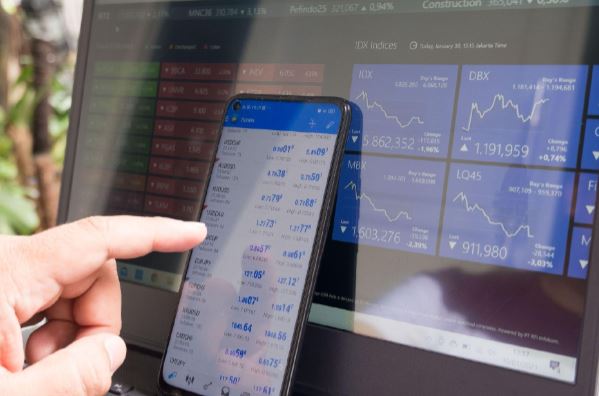
Foreign exchange, more commonly referred to as FX, is an expansive and intricate market where currencies are traded globally. While its size and complexity may seem intimidating to novice traders just starting their trading journeys, with proper tools and knowledge, even the uninitiated can navigate this marketplace confidently and precisely.
Understanding The Importance Of Technical Analysis
Technical analysis is critical for successful trading on the FX market. It involves studying past market data – mainly price and volume – to predict future price movements. This analysis can be carried out on any security with historical trading information. Every trader, particularly newcomers to Forex trading, should become acquainted with crucial tools, including the following.
Metatrader 4: The CornerstoneOf Forex Trading
Metatrader 4, better known by its initials MT4, stands out among Forex trading platforms with an accessible user interface combined with powerful technical analysis tools. From real-time price charts and indicators, MT4 provides traders with everything they require to make informed trading decisions.
Chart Patterns: Interpreting Market Communication
Chart patterns are essential to technical analysis, representing traders' psychological reactions in the market. Some of the more frequently seen chart patterns include:
Head And Shoulders Pattern: This trend-reversing formation often indicates an imminent shift.
Double Top And Bottom Patterns: Both patterns indicate strong resistance or support levels in the market, respectively.
Technical Indicators Serve As The Compass Of The FX Market
Technical indicators help traders predict future price movements by examining past market information. Some of the more widely used indicators include:
Moving Averages: These indicators smooth price data into an easily discernible single streamline that simplifies identifying trends.
Relative Strength Index (RSI): This momentum oscillator tracks price movements to determine their speed and change over time. An RSI above 70 suggests security may have become overbought, while one under 30 could indicate it has reached oversold conditions.
Bollinger Bands: Bollinger Bands are composed of an N-period simple moving average (SMA), two upper bands, and a lower band to identify volatility and overbought/oversold conditions and volatility risks for traders.
An Effective Trading Strategy
Every successful FX trader relies on an effective trading strategy. A trading strategy refers to an established set of rules and guidelines that defines entry/exit criteria and money management criteria for trading activities in FX markets. Popular strategies may include:
Trend Following: Trend Following involves recognizing and trading with market trends. Tools like moving averages and momentum indicators can prove immensely helpful when applied by trend followers.
Scalping: Scalping is an approach used in the Foreign Exchange Market that involves making multiple trades to capitalize on small price movements and profit from them.
Swing Trading: Swing traders seek to capitalize on price swings by entering trades to capitalize on them. They analyze potential price movements and attempt to capture an essential chunk of them before entering trades that try to capture that movement.
Economic Indicators: Factors like GDP growth, unemployment, and inflation can significantly alter currency values.
Central Bank Decisions: Any change to interest rates and decisions by central banks that impact monetary policy could cause major currency market movements.
Geopolitical Events: Elections, trade wars, and international conflicts may influence traders' emotions, which affect currency values, thus altering traders' sentiments and driving up currency values.
Diversification: Widening Our Nets
Diversification is one of the cornerstones of finance and trading. On the Forex market, this diversification strategy may take various forms, such as:
Trading Multiple Currency Pairs: Instead of solely trading major pairs such as EUR/USD or GBP/USD, consider exploring opportunities in lesser-known or exotic pairs, as each may present distinct opportunities based on regional economic and political considerations.
Diversifying Assets: Although currencies might be your primary focus, diversifying into commodities, indices, or cryptocurrency investments may provide further protection from market fluctuations.
Psychology And Mindset Of Traders
There is something to be said about the emotional tools a novice trader would need. Trading often becomes an emotional and intuitive process, and it’s important to have a handle on one’s feelings in a high-risk, high-reward arena like trading.
Emotional Discipline: Being able to master our emotions like fear and greed is essential since trading under emotional duress often results in making hasty decisions that lead to losses.
Patience: Waiting patiently for the right trading opportunities can make an immense difference in outcomes.
Resilience: Every trader experiences losses at some point; what sets successful traders apart is their resilience — being able to pick themselves back up, learn from past errors, and move forward despite these setbacks.
Backtesting: Why Backtracking Is Important
Backtesting involves applying your plan to historical data to see how well it would have performed; although past performance cannot guarantee future returns, backtesting provides invaluable insights. This is when traders ask themselves the tough questions.
Profitability: This is when traders ask themselves, “How successful has my strategy been at producing profits over a particular period?”
Drawdown: What could be the maximum loss from this strategy?
Risk/Reward Ratio: Does the potential reward justify taking on risk?
Maintain A Pulse On Global Economic Development
The FX market does not operate in isolation; its fate is tightly interwoven with global economic, political, and social events. Staying current on world news — oil price fluctuations, political elections across major economies, or pandemic outbreaks — is crucial when trading FX currency pairs. Even minor events, such as oil price changes, can profoundly impact FX trading activities.
Forex Final Thoughts - Currencies Conclusion
FX trading requires analysis, strategy, a healthy understanding of human psychology, and continuous learning. With global economic trends changing and becoming even more globalized, major changes can be expected in the FX market. Providing traders with challenges and opportunities as they travel along this ever-evolving path of FX trading means they must arm themselves with dedication, appropriate tools, a growth mindset, and commitment.
If you are a novice trader, the sky is your limit regarding FX trading; embrace its journey while staying curious — let foreign exchange trading open up its world for you to discover.

